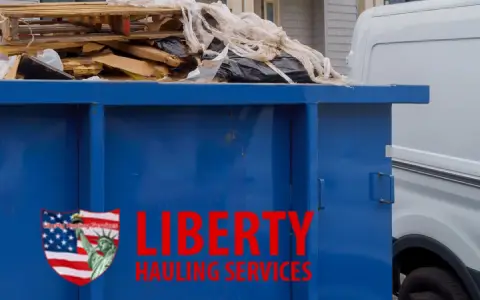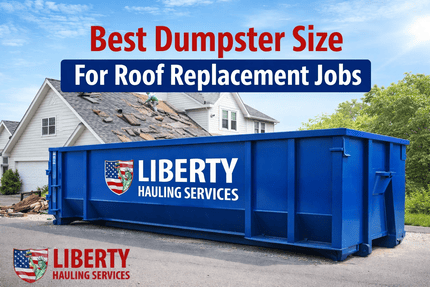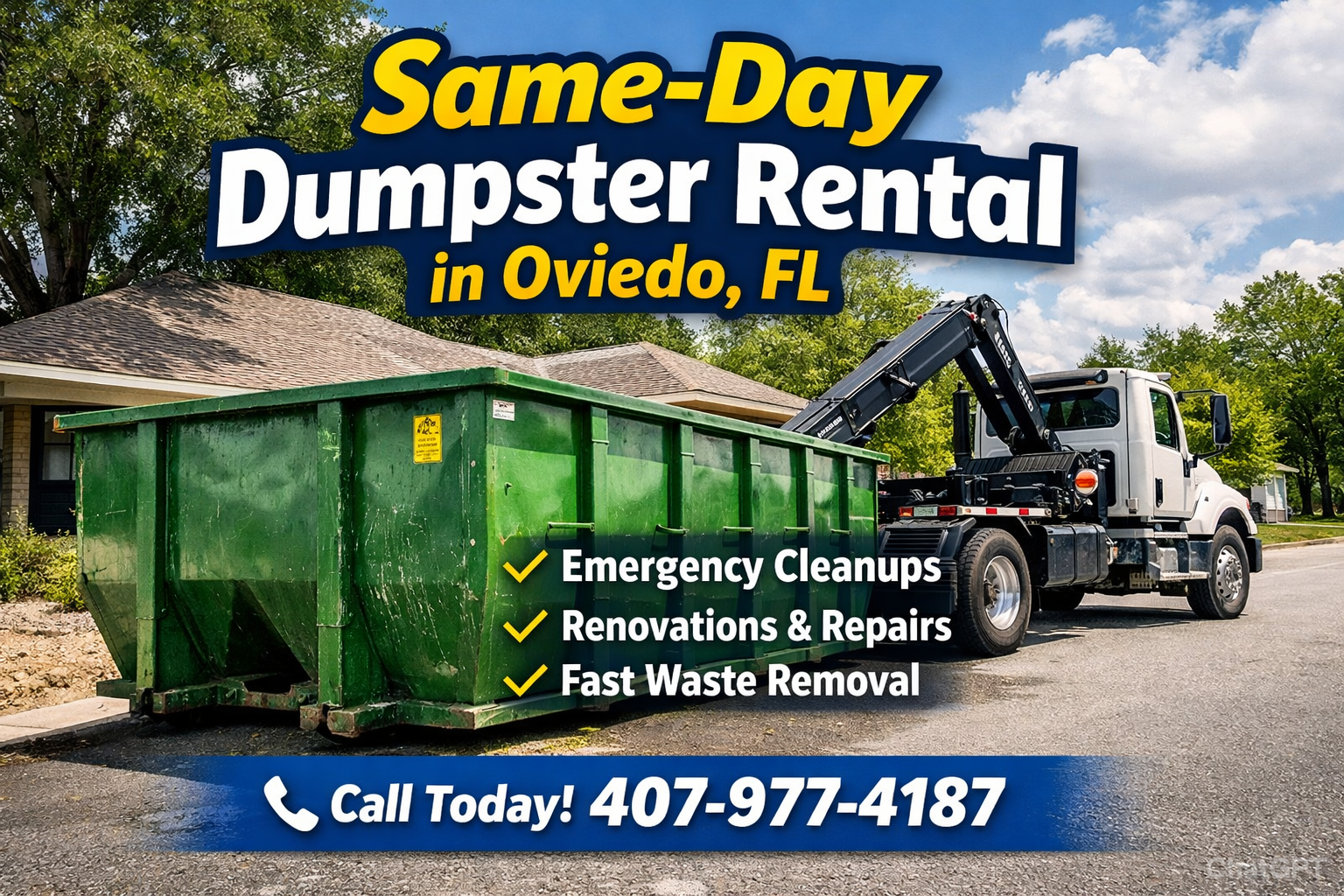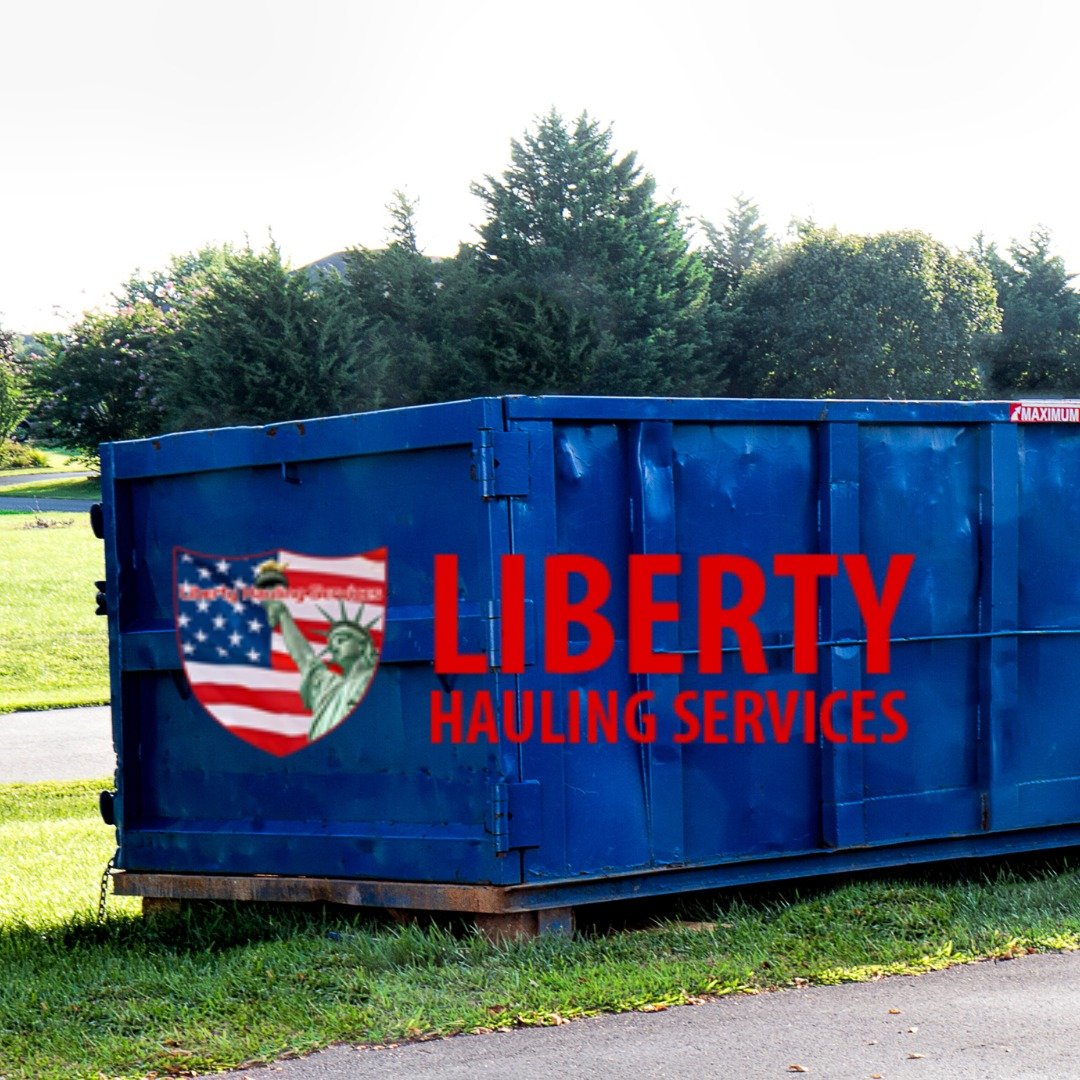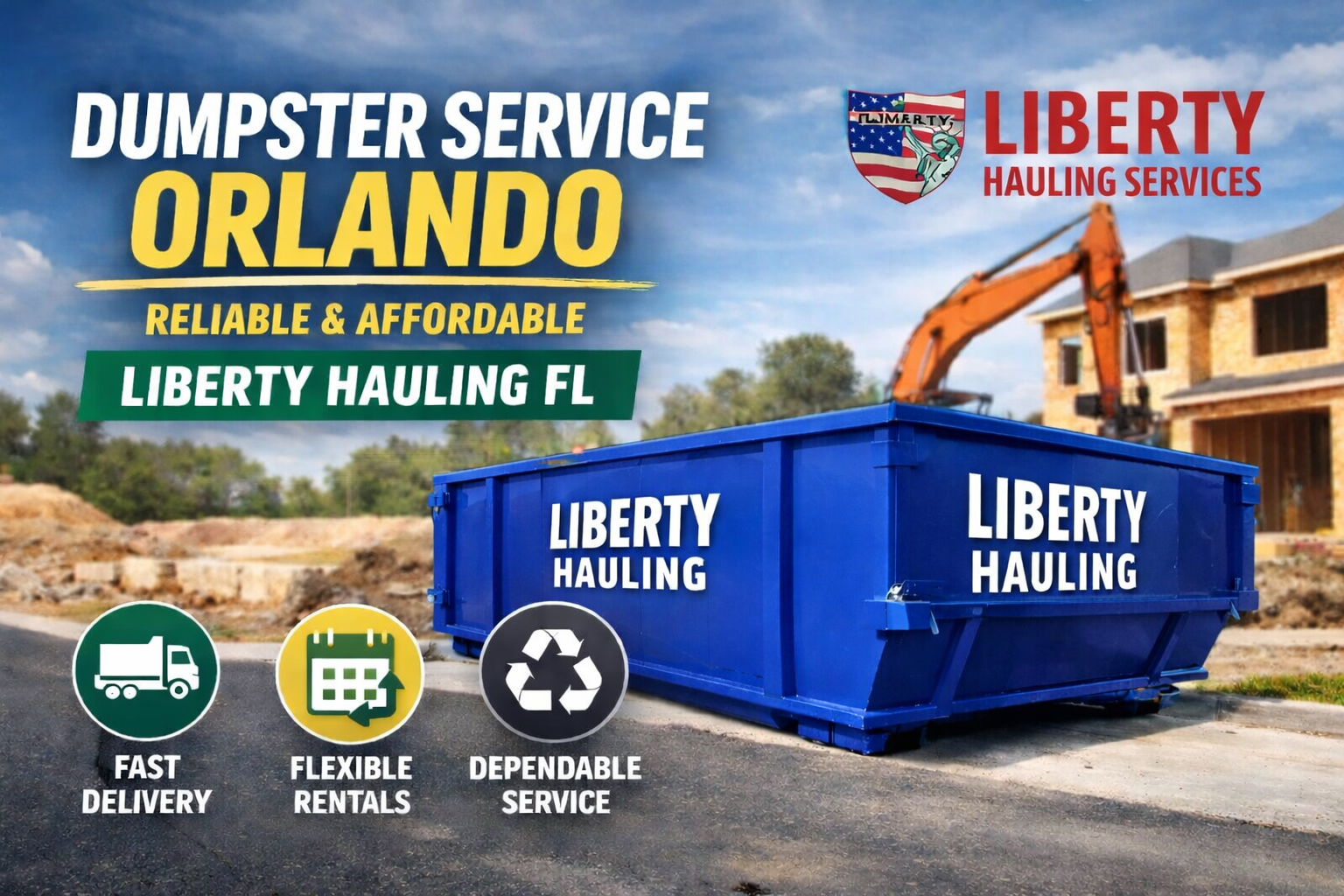Table of Contents
ToggleConstruction projects are on the rise throughout Orlando. From residential projects in Laka Niona to commercial renovations in Downtown, you will find the city has been developing fast. With the growing construction projects, one thing is certain: a large volume of waste. Managing construction debris is not just about hauling it away. It’s about handling it safely, legally, and responsibly. Every contractor, builder, or homeowner must understand the common types of construction waste and how to dispose of them efficiently. It is the key to keeping your project on track and compliant with local regulations.
In this blog, we’ll walk through the most common construction waste materials that are common in every Orlando job site. We will also discuss the disposal tips, recycling options, and how dumpster rentals can make the process easier.
1. Concrete and Masonry Waste
The common waste includes the following:
- Old concrete slabs
- Bricks
- Cinder blocks
- Asphalt
- Stone
- Other construction waste.
These waste materials are left behind after demolition or hardscaping. Concrete and brick are heavy and bulky, but these can often be recycled. Several recycling centers in Orlando accept clean concrete for reuse in road base or other construction materials.
If recycling isn’t possible, you can consider renting a heavy-duty roll-off dumpster (typically 20- to 30-yard). It is the best way to dispose of these materials safely. Make sure your rental company allows concrete loads, as weight restrictions may apply. Also, separating clean concrete from mixed debris helps you to avoid contamination and reduce disposal costs.
2. Wood and Lumber Waste
The common waste is:
- Framing lumber,
- Plywood
- Treated wood
- Particleboard
- Pallets
- Scrap wood
This waste comes from demolition or carpentry work and is the common waste at any job site. Recycling or mulching can be done for clean and untreated wood. Treated wood (pressure-treated or painted) usually must be landfilled due to chemical treatments. You can hire a dumpster rental company. Their services make it easy to load up wood waste as you go. Bundle long wood pieces or cut them into smaller pieces to maximize the space in the dumpster. Just ensure hazardous-treated wood is separated from recyclable material.
3.Drywall and Plaster
Common waste includes:
- Scrap drywall (gypsum board)
- Plaster from wall removals
- Dust during demolition or installation
Drywall is recyclable. Its recycling proximity increases if it is not mixed with paint or mold. In Orlando, some industries accept clean gypsum, scrap. These are processed to use new drywall or agricultural products.
However, most residential or mixed-use sites hire a dumpster rental company to dispose of drywall waste. Be cautious when disposing of painted or older drywall, as it may contain lead-based paint or other restricted materials. Drywall dust should be kept under control by bagging it or sweeping regularly. Excess dust can cause weight overages in your dumpster.
4.Metal Scraps
The common waste includes:
- Steel
- Aluminum
- Copper wiring
- Nails
- Metal studs
- Piping left over from framing
- Roofing
- Electrical work
Any metallic waste is considered valuable and can be recycled for different purposes. This waste is accepted by most scrap yards in Orlando. Therefore, if you have a large volume of metallic waste, consider separating and selling the metal to a recycling center. For mixed debris jobs, a dumpster rental is a wise choice. However, you should ensure separating the materials so that you can get maximum value for this waste. For picking up ferrous metals from the waste, you can use a magnet. It will attract the ferrous easily, and there will only be non-ferrous (non-magnetic) metals.
5.Roofing Materials
Common waste is:
- Asphalt shingles
- Metal roofing
- Underlayment
- Tar paper
- Old flashing from roof replacement or repairs
Roofing waste is messy and heavy and contains tar and adhesive. That is why it is not recyclable. 10-yard or 20-yard dumpsters are considered ideal for roofing projects, especially for placing the shingles. These are heavy and require a dedicated space in the dumpster. While you are filling the dumpster, it is crucial to keep in mind that you should not overfill the dumpster. Otherwise, you will have to pay additional charges. Before hiring the dumpster rental services, you can ask them about the overweight charges, as several companies offer special pricing due to the weight.
6.Insulation and Packaging Waste
Common waste includes:
- Fiberglass batts,
- Foam boards
- Spray foam remnants
- Cardboard boxes
- Plastic wrap
- Packaging from new materials
Most insulation waste can not be recycled and must be disposed of in the landfill. Fiberglass insulation should be handled with care to avoid skin or respiratory irritation. However, cardboard and plastic packaging can be recycled. Ion several construction sites, there are separate bins for recyclable packaging. As you start filling the dumpster, make sure to break down cardboard boxes to save space and recycle them separately from your general debris dumpster.
7.Hazardous Construction Waste
Common waste is:
- Paints
- Solvents
- Adhesives
- Asbestos
- Lead-based materials
- Chemicals
You are not allowed to put hazardous materials into a dumpster. This should be disposed of in accordance to the Orange County hazardous waste disposal policies. Unethical disposal may result in heavy fines. In case there is some asbestos or lead within the construction waste, seek the services of licensed professionals to remove and dispose of the waste. Hazardous materials should not be stored together with discarded trash in a construction dumpster. Have a hazardous waste list on-site and inform workers what cannot be discarded into the dumpster.
How Can A Dumpster Rental Company Help Manage Waste Removal
Managing waste at any construction site can be overwhelming. There are safety concerns, local guidelines, and other factors that you should keep in mind. There comes the role of a dumpster rental company. They help you find the best size according to the waste.
Benefits of using a dumpster rental:
- Keeps your site clean and organized
- Reduces safety hazards
- Saves time as there is no need for multiple trips to the landfill
- Supports efficient sorting and disposal
However, you should consider several factors before hiring a dumpster rental service. These are as follows:
- Choose the right size for your project scope
- Confirm what materials are allowed
- Ask about weight limits and rental periods
- Schedule a timely delivery and pickup
Final Thoughts
Construction waste disposal is not merely the simple cleanup of your project site. It also comes up with keeping up with safety measures and managing your project on budget. If you understand the types of waste you’re generating and how to handle them properly, you can avoid costly mistakes. Further, it reduces the carbon footprint.
Hire us at Liberty Hauling Services for all your needs regarding waste removal. We have long been offering dumpster rental services for all types of commercial and residential projects. Call us right away to book your dumpster!
FAQs
- What are the most common types of construction waste?
Concrete, wood, drywall, metal, roofing materials, insulation, and packaging are among the most common construction waste types.
Can construction debris be recycled?
Construction materials that can be recycled are concrete, clean wood, and metal. Several local facilities and scrap yards accept this waste for recycling purposes.
What construction waste can not go in the dumpster?
Hazardous materials like paint, solvents, asbestos, and lead-based items are prohibited in dumpsters. These require special disposal methods.
What is the best dumpster size for construction projects?
For most construction projects, a 20- or 30-yard dumpster works well. Heavy materials like concrete or shingles may require a 10-yard bin.
How should I handle drywall waste on a construction site?
Drywall can be recycled if it remains clean and uncontaminated. Otherwise, you should dispose of it in a general construction dumpster.

